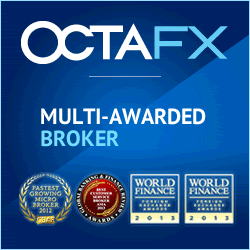If you’re looking to trade forex in Australia, choosing the right broker is crucial. With so many options available, it can be tough to know where to start. We have looked at key features, such as trading platforms, fees, and regulation, and give you our top picks for the best brokers. Each of these brokers offers a range of trading platforms and tools, so it’s important to compare them to find the one that best suits your needs.
List Best Forex Brokers in Australia
| Broker | Features | Regulated | Website |
|---|---|---|---|
|
| FSA, FSC, CBCS, FSCA, CySEC, FCA | |
|
| FSA, FMA | |
|
| CySEC, FSC, FSCA, ASIC | |
|
| CySEC, FSA, ASIC, SCB | |
|
| CySEC, FCA, IFSA | |
| CySEC, FCA , DFSA, FSCA , FSA , CMA | ||
| FCA, ASIC, DFSA | ||
|
| ASIC, CIMA ,DFSA, FCA | |
|
| FSC, CYSEC, ASIC | |
|
| ASIC, CySEC, ESMA | |
|
| FCA, CySEC, FSC | |
|
| FSA, CySEC | |
|
| IFSC | |
|
| CySEC, ASIC, FSC, DFSA, FCA | |
|
| FCA, CySEC | |
|
| FSA | |
|
| CySEC, FSC, FSCA | |
|
| FSC | |
|
| FinaCom | |
|
| Not Regulated | |
|
| CFTC , IIROC, CySEC, FCA, FSA, MAS, CIMA, ASIC | |
|
| MFSA,ISA, LFSA, IFSC ,VFSC | |
|
| FCA , ASIC, FSA, FSCA | |
|
| VFSC ,FSP , ASIC,FSCA | |
|
| FINMA, FCA, MFSA, SFC, DFSA | |
|
| FCA, CSSF and SCB | |
|
| CFTC, NFA, FCA, MAS, ASIC, IIROC, FFAJ | |
|
| SEC and FINRA | |
|
| US SEC & CFTC, ASIC, FCA, IIROC, SFC, NSE, BSE, FSA | |
|
| CySEC, KNF, FCA, IFSC | |
|
| FCA, CySEC, FSC, FSA | |
|
| ASIC, MAS, FCA | |
|
| FSC | |
|
| FCA, ASIC, FSC, CYSEC | |
|
| FMA | |
|
| FSA, FCA, CySEC, FSCA | |
|
| FCA, CySEC, FSCA, SCB | |
|
| CIF, CySEC, | |
|
| FSC, CySEC, | |
|
| CBI, ASIC, FSC, FCA, FSCA | |
|
| FSC | |
|
| VFSC | |
|
| CySEC, FSC | |
|
| CySEC, FCA, ASIC, FSAS | |
|
| FSA | |
|
| ASIC, FCA, CySEC, CIPC, JSC | |
|
| CySEC, FCA, ASIC, FSA |
The Australian Forex Market
Australia has a vibrant and dynamic forex market, with many retail traders and institutional investors actively participating in the market. According to the latest data from the Reserve Bank of Australia, the average daily turnover of the Australian forex market is approximately $400 billion, making it one of the largest in the world.
Major Players in the Australian Forex Market
There are a number of major players in the Australian forex market, including banks, retail forex brokers, and institutional investors. The major banks in Australia, such as Commonwealth Bank, Westpac, and National Australia Bank, are active participants in the forex market, both as market makers and as traders on behalf of their clients.
Retail forex brokers also play a significant role in the Australian forex market, providing trading platforms and services to retail traders.
Institutional investors, such as hedge funds and asset managers, also participate in the Australian forex market, using a range of trading strategies to profit from changes in exchange rates.
Regulations of the Australian Forex Market
The Australian forex market is regulated by the Australian Securities and Investments Commission (ASIC), which is responsible for ensuring that all participants in the market operate in a fair and transparent manner. Retail forex brokers in Australia are required to hold an Australian Financial Services (AFS) license, which is issued by ASIC and requires the broker to meet strict standards for financial stability, risk management, and client protection.
Trading Strategies in the Australian Forex Market
There are a wide range of trading strategies that can be used in the Australian forex market, including technical analysis, fundamental analysis, and algorithmic trading. Technical analysis involves using charts and other tools to identify patterns in price movements and make trading decisions based on these patterns. Fundamental analysis, on the other hand, involves analyzing economic and political factors that may impact currency prices, such as interest rates, GDP growth, and geopolitical events.
Algorithmic trading, also known as automated trading, involves using computer programs to execute trades based on predefined rules and algorithms. This type of trading is popular among institutional investors and high-frequency traders, who are able to take advantage of small price movements in the market.
Conclusion
Forex trading in Australia offers a wide range of opportunities for traders of all skill levels, from retail traders to institutional investors. With a vibrant and dynamic market, strict regulations, and a range of trading strategies to choose from, there has never been a better time to start trading forex in Australia.
Is forex trading legal in Australia?
Yes, forex trading is legal in Australia, and is regulated by the Australian Securities and Investments Commission (ASIC).
Do I need a license to trade forex in Australia?
No, you do not need a license to trade forex in Australia, but you do need to open an account with a regulated broker.
What are the trading hours for forex in Australia?
Forex trading is available 24 hours a day, five days a week, from Sunday evening to Friday afternoon.
Do forex brokers charge fees and spreads?
Yes, forex brokers make money by charging fees and spreads on trades. It’s important to choose a broker that offers competitive spreads and low fees to ensure you’re getting the best.















































